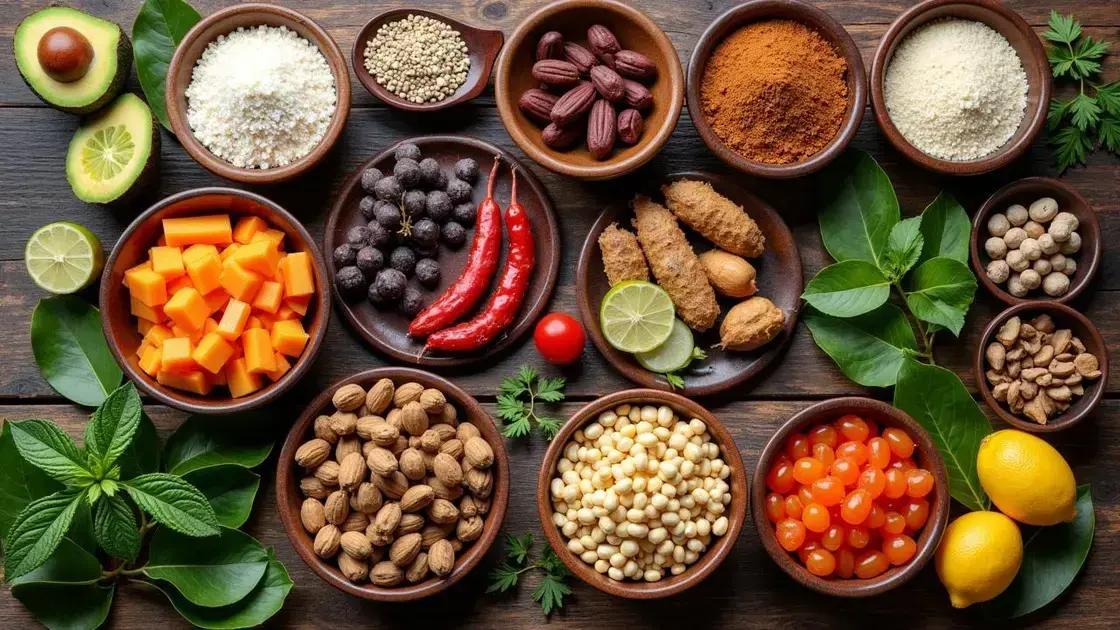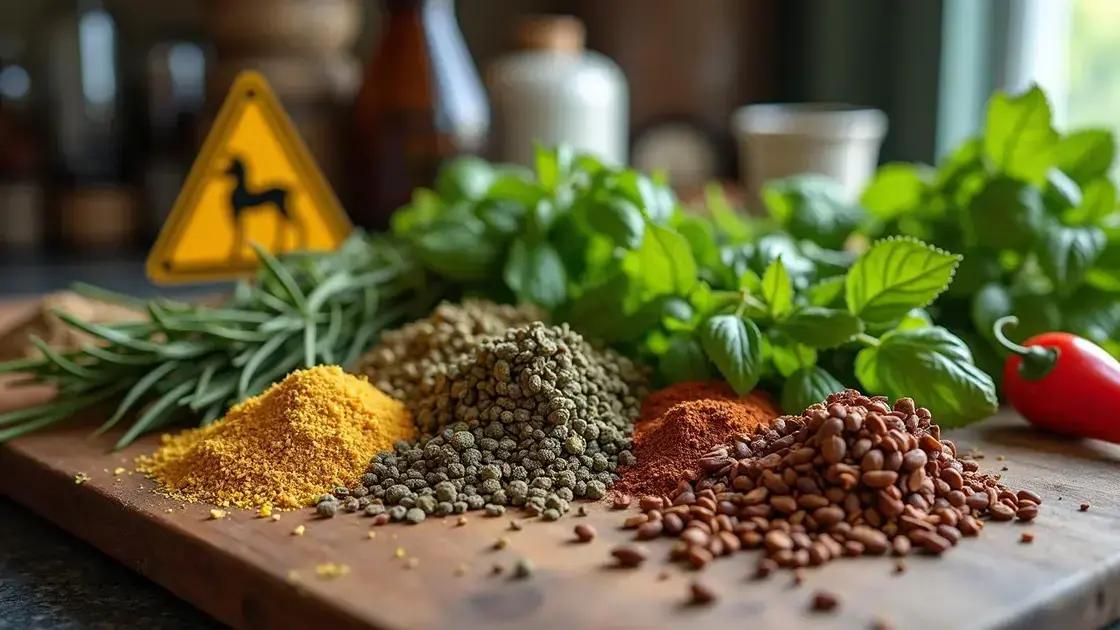The African Recipe can offer numerous health benefits, including vitamins and minerals, but it may cause side effects like stomach upset or allergic reactions. Always consult a healthcare provider and start with small amounts to ensure safety.
The African Recipe has gained popularity for its purported health benefits. However, many are left wondering, are there side effects of the African Recipe? This article dives into the essentials you need to know before trying this traditional remedy. Understanding both its powerful attributes and possible drawbacks can make a significant difference in your health journey. Let’s explore the intricacies of this recipe and what to watch out for.
Understanding the African Recipe

The African Recipe refers to a variety of traditional dishes and remedies that originate from various African cultures. These recipes often utilize natural ingredients found in the environment, including herbs, spices, and indigenous plants known for their healing properties. Understanding the African Recipe involves appreciating its significance in culture, health, and sustainability.
Key Ingredients
Many African Recipes are rich in nutrients and flavor. Common ingredients include baobab fruit, which is high in vitamin C, and fonio, a nutritious ancient grain. The use of ginger and turmeric adds both taste and anti-inflammatory benefits to dishes. Furthermore, leafy greens like moringa are often included for their health-promoting qualities.
Cooking Techniques
Understanding how these ingredients are prepared is crucial. Traditional methods often involve slow cooking, fermenting, and using open flames. These techniques enhance flavor while preserving the nutritional content of the ingredients. For instance, stews and porridges are common, allowing flavors to meld and creating hearty meals.
Cultural Significance
The African Recipe is not just about food; it is a part of cultural heritage. Recipes are often passed down through generations, each adding a personal touch. They play a role in family gatherings, celebrations, and even community health. Recognizing this cultural context is vital to understanding the widespread appeal of these recipes.
By knowing the ingredients and the cultural significance, individuals can appreciate the value of African Recipes. It’s also important to consider how combining traditional knowledge with modern health insights can influence our perceptions of nutrition and wellness.
Possible Side Effects and Precautions

When considering the African Recipe, it’s important to be aware of possible side effects and precautions. While many ingredients are nutritious and beneficial, they can affect individuals differently.
Common Side Effects
Some people may experience mild side effects, such as stomach upset, allergic reactions, or nausea after consuming certain ingredients. For instance, baobab fruit, while rich in nutrients, may cause digestive discomfort for some.
Drug Interactions
Ingredients within the African Recipe may interact with medications. For example, turmeric can affect blood thinners. Always consult a healthcare provider before adding new supplements or recipes to your diet, especially if you are on medication.
Personal Sensitivities
Individual sensitivities play a huge role. Anyone with known allergies should carefully review the ingredients before trying any recipe. It’s wise to start with small amounts to test your body’s reactions.
Pregnancy and Nursing
Pregnant or nursing women should exercise caution. Some ingredients can have strong effects and may not be suitable during these periods. Consulting a healthcare provider is highly recommended.
In summary, being informed about possible side effects and taking precautions can help individuals safely enjoy the benefits of the African Recipe. Knowing your body and seeking professional advice is key to avoiding adverse reactions.
In Conclusion: Embracing the African Recipe Safely
The African Recipe offers a wealth of flavors and nutritional benefits, drawing from rich cultural traditions. However, it is essential to be aware of potential side effects and take necessary precautions. Understanding the ingredients and their effects on your health can enhance your experience while minimizing risks.
Whether you are exploring these recipes for culinary enjoyment or health benefits, being informed is key. Always listen to your body and consult with healthcare professionals when necessary. This approach will ensure that you can enjoy the myriad benefits of the African Recipe safely and deliciously.
Embrace the journey of discovery while prioritizing your health and well-being, and enjoy the rich flavors and traditions of African cuisine.
FAQ – Frequently Asked Questions About the African Recipe
What are the main ingredients in the African Recipe?
The African Recipe features diverse ingredients like baobab fruit, fonio, turmeric, and various leafy greens, each adding unique flavors and benefits.
Can the African Recipe cause side effects?
Yes, some individuals may experience mild side effects like stomach upset or allergic reactions. It’s essential to know your sensitivities.
How can I safely try the African Recipe?
Start with small amounts to test your body’s reactions. Consulting a healthcare provider can also help, especially if on medication.
Are there specific precautions for pregnant women?
Yes, pregnant or nursing women should be cautious with certain ingredients and consult their healthcare providers before trying new recipes.
How do cultural factors influence the African Recipe?
The African Recipe reflects cultural heritage and traditions, with ingredients and cooking methods often passed down through generations.
What health benefits are associated with the African Recipe?
Many ingredients are rich in vitamins, antioxidants, and anti-inflammatory properties, aiding in overall health when consumed as part of a balanced diet.













